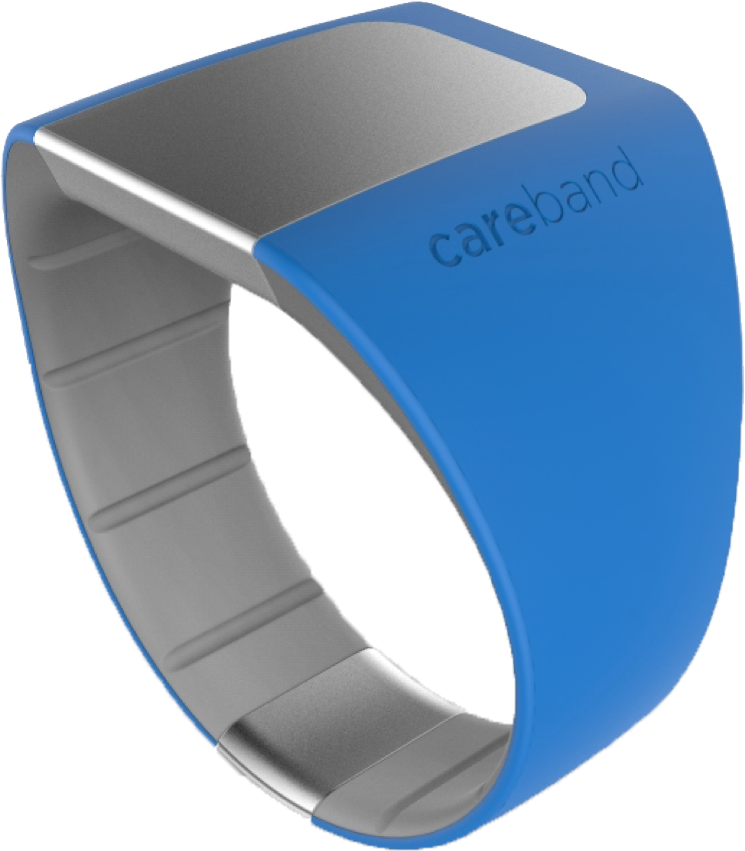Safety Bracelet Aims to Keep Wandering Seniors Close to Home
 Sobol says the design of the safety bracelet will likely change as the product evolves.
Sobol says the design of the safety bracelet will likely change as the product evolves.
Subscriber Benefit
As a subscriber you can listen to articles at work, in the car, or while you work out. Subscribe NowAnyone caring for a person with dementia or Alzheimer’s disease knows well the constant concern about their loved one inadvertently wandering into danger. An Indiana University graduate student has just pocketed $100,000 to further develop a technology he says will protect seniors and bring peace of mind to their caregivers. Called CareBand, the safety bracelet monitors the wearer’s location and alerts caregivers or family when the senior wanders outside a determined safety zone.
IU information systems graduate student Adam Sobol developed one of the two student-led technologies to capture top prize at the Building Entrepreneurs in Software and Technology (BEST) Competition, hosted by IU’s School of Informatics and Computing and Kelley School of Business. Sobol launched CareBand in 2013 when his father, a geriatric physician, noted the growing need for caregivers to keep track of elderly people with dementia or Alzheimer’s.
CareBand utilizes a location-based information technology that tracks the senior on a much smaller scale than GPS, for example. The patent-pending system requires the user to install a “beacon” inside a room to be monitored; a single house would require a handful of beacons. These electronic devices communicate with the senior’s safety bracelet.
“If they move outside of their home,” says Sobol, “the system knows when they move past a door, for example, so it alerts the caregiver that the person is wandering.”
Sobol originally designed the technology for single homes, but is now fine-tuning it for assisted living facilities. Beacons would be placed in the rooms of patients who need to be monitored, at various locations throughout the facility and on exit doors; any number of seniors inside the facility could wear the bracelets for monitoring. The system can be customized to monitor patients’ movement on a small scale or more broadly.
“People who are at risk of wandering tend to come up with creative ways to get out of these facilities,” says Sobol. “Although people with dementia have a lot of cognitive loss, they can still do functional things, even though they’re not aware of what they’re doing. In the memory care units, you sometimes see dementia patients looking over the shoulder of nurses to see the keypad code [to exit doors], and then try to do the code later.”
The bracelet uses a battery that lasts several months and also comes equipped with fall detection, which doesn’t require the senior to press a button after falling, but senses the fall and automatically alerts the caregiver. Using a computer, tablet or mobile phone, the caregiver can log-in to a portal and see a variety of information about the user’s movement. Sobol believes it will bring peace of mind to caregivers and family members who live with the daily anxiety of their loved ones wandering into danger.
“Since winning [the BEST Competition], [CareBand] has been getting a lot of interest, so we know demand is there,” says Sobol. “We have a few facilities interested in pilot testing it, and a lot of people lined up and eager to use the technology.”
Sobol plans to invest the $100,000 in prize money to further develop CareBand, expand the company’s team and prepare the system for pilot testing, likely at facilities in Indiana and Ohio. Now in its fifth year, the 2016 BEST competition marked a total of $1 million invested in student entrepreneurs. Its investors are mostly IU alumni and include Scott Dorsey, managing partner of High Alpha and former chair and co-founder of ExactTarget, and Steve Ferguson, chairman of The Cook Group.
“The money isn’t as important as the people; the group of investors behind the money is really impressive,” says Sobol. “You’ve got people who have started multi-million dollar companies and sold to huge companies too. I think that’s what I ‘won,’ but the money is also important to help the business run, grow and achieve what we’re trying to.”
Sobol will earn his graduate degree in just a matter of days and start like many entrepreneurs—working a traditional full-time job while simultaneously toiling away on his business idea. Noting a lack of focus on the senior community, he’s hopeful CareBand could soon be protecting the elderly and giving caregivers peace of mind.
Sobol says the aging population underscores the need for CareBand.
Sobol says winning the BEST Competition has helped reinvigorate his entrepreneurial passion.
